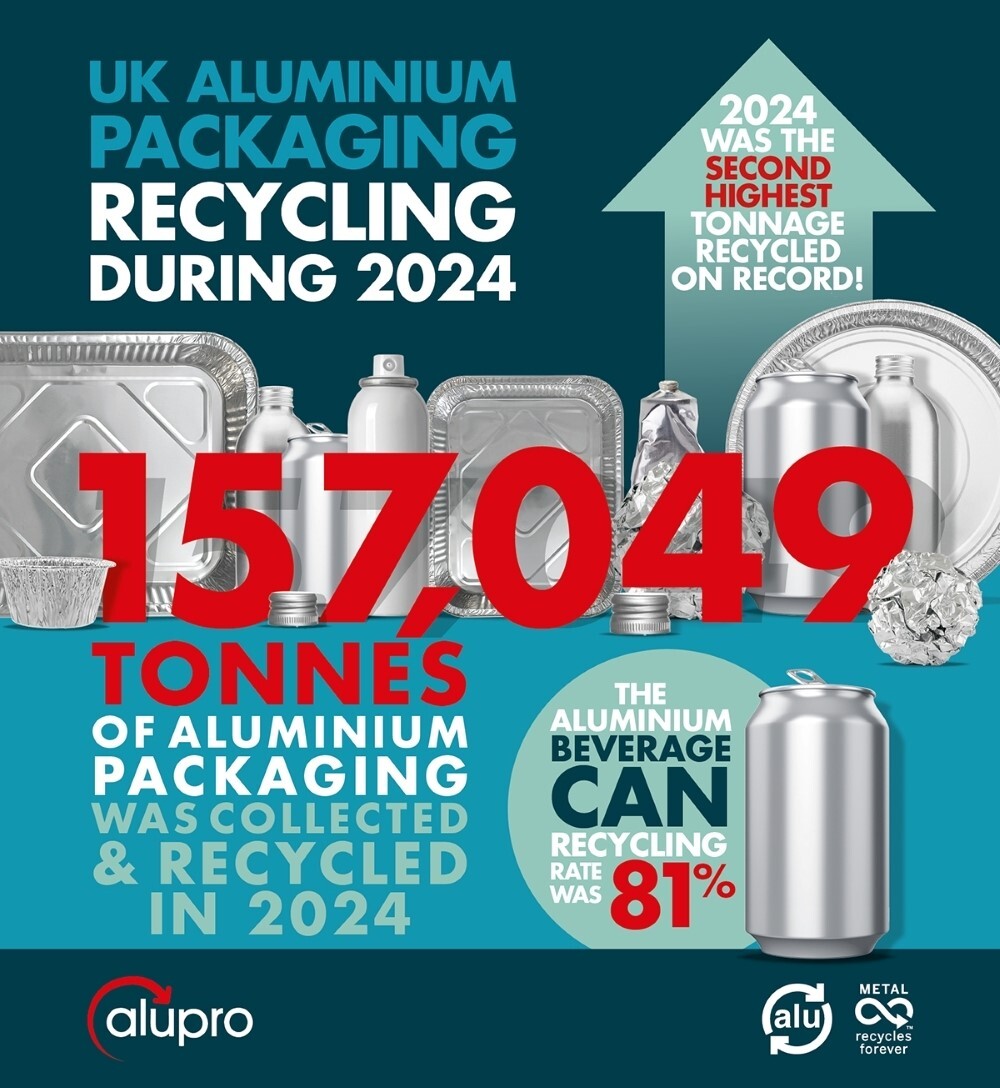The United Kingdom not only met its aluminium packaging recycling targets in 2024, but it also decisively exceeded them. According to the Environment Agency’s National Packaging Waste Database, 157,049 tonnes were recycled, surpassing the 151,281-tonne obligation. This isn’t just a statistical win; it reflects a maturing system with rising efficiency, even as domestic consumption continues to grow.
What makes this performance particularly notable is its breadth. Kerbside, on-the-go, and bring-back schemes captured 114,462 tonnes, while incinerator bottom ash (IBA), often overlooked, accounted for an impressive 41,635 tonnes. With an additional 952 tonnes from other streams, the sector closed the year with a surplus of 8,579 tonnes in Packaging Recovery Notes (PRNs) and a 2,811-tonne carry-in for 2025. These figures point to a well-distributed, resilient infrastructure capable of absorbing market pressure.
Tom Giddings, Executive Director of Alupro, praised the results, but his remarks carried a deeper message: this level of success is no accident. It’s the outcome of more than two decades of deliberate investment in aluminium recycling from collection systems to consumer engagement. The sustained 81% recycling rate for beverage cans is less a milestone than a marker of a system reaching maturity.
Critically, Giddings also signalled what must come next. His emphasis on robust policy implementation reflects a broader industry consensus: to maintain momentum, infrastructure must now be matched by regulation. The upcoming Deposit Return Scheme (DRS) and Extended Producer Responsibility (EPR) legislation are not just next steps they’re structural accelerators. And with PRN reform on the table, the opportunity is ripe to align market incentives with real environmental outcomes.
2024 has set a new benchmark. With the right policy scaffolding, the UK is poised not just to sustain this progress, but to lead Europe in building a truly circular aluminium economy.
Source: Alcircle with additional information added by GlassBalkan




![Glassbel and HEGLA at the new Laserbird installation in Klaipėda. [Photo by HEGLA boraident]](https://glassbalkan.com/wp-content/uploads/2025/06/download.jfif-4-1-Edited.jpg)


